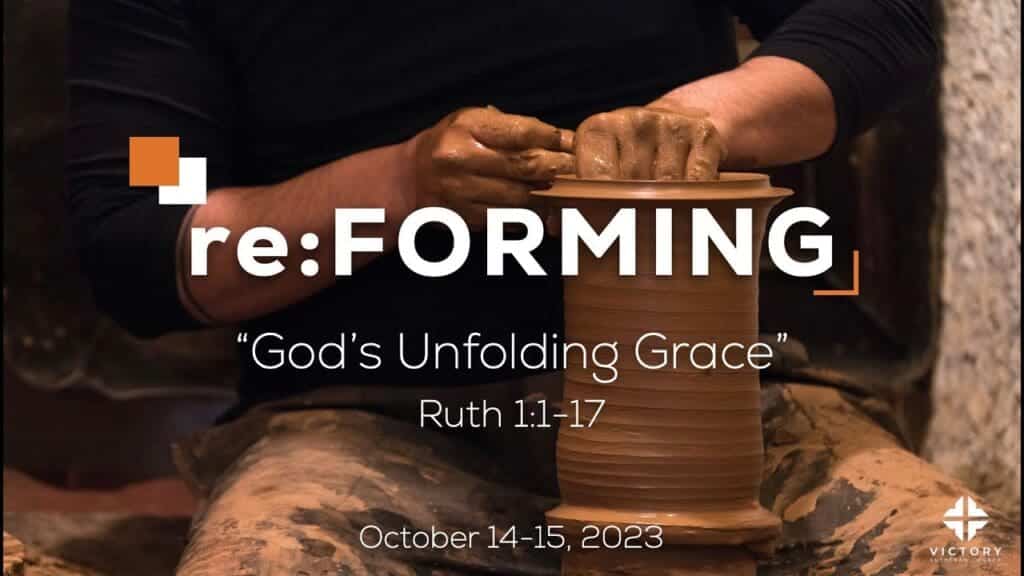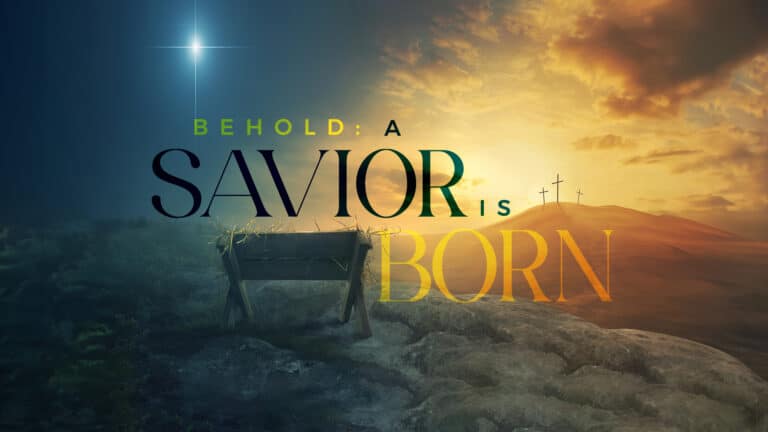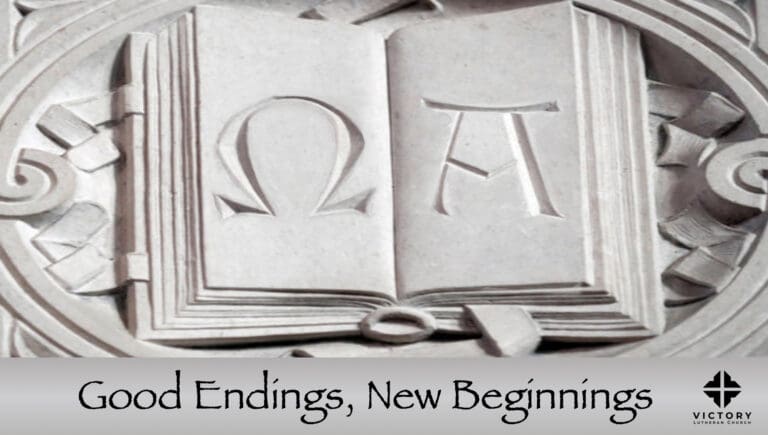From ordinary to extraordinary. That’s what we’re looking at today. You know, I think it can be easy to see people that we consider to be extraordinary today, people successful or famous and to think that they’ve always been at the top of their game. But I think the reality more often than not is that’s not the case. Often successful or famous people have had a rough road in life. Consider just a few people that you might find familiar. Steven Jobs. I might have just heard a device go off that he might have designed and made. It’s a household name, but his life was not always easy. Jobs was given away for adoption by his biological parents. He had to drop out of college because his education was costing too much for his foster parents to pay. In fact, he used to return Coke bottles for money. Remember what those were? And he lived on free meals at a local Hare Krishna temple for a while. How about this name? Oprah. Known by just one word, isn’t it? Oprah Winfrey. She was born to a housemaid and a coal miner. She did not grow up in the lap of luxury. Rather, she grew up knowing poverty. Where she used to have to wear dresses made out of potato sacks. And she lived in an abusive, destructive home. Jim Carrey, remember this comedian turned actor? Things weren’t always good for him. At 12 years old, the actor was homeless and living in a van down by the river, I could say, after his father lost his job. Arnold Schwarzenegger, the California Governator. He didn’t always have an easy childhood. He was born in 1947 in his homeland of Austria, was devastated by World War II, and he lived in a home with no plumbing, no phone, and hunger based riots plagued the streets outside his doors.
I mean, the narrative of all these seemingly extraordinary people reveals really that what you see now isn’t always what was. And the same maybe could be said for you. And it might even be said that what you see now isn’t always what is going on underneath. Let me lay a little theological line on you. I learned in my doctoral studies. In Latin it goes, ecclesia reformata semper reformanda, which is translated, church reformed, church reforming. According to the word of God and the call of spirit, the church is formed, reformed, and always reforming. It’s really the root for the title behind the sermon series called reforming. And a scriptural basis for this comes out of Isaiah chapter 64, where the Bible says, Yet you, Lord, are our Father. We are the clay. You are the potter. We are all the work of your hand. What you see, once the potter is done with his creation, looks far different than it did when he started and in the process of being formed. And there are times even when the potter kind of crushes and begins all over again and reforms what he’s creating so he can make something even better. And even once the piece of clay is fully formed into a masterpiece, it has to endure the fires of the kiln that are used to forge the creation together.
In other words, the finished product doesn’t represent the process through which it was formed and even reformed. And today we’re going to explore how God forms and reforms the ordinary. Into the extraordinary, specifically molding his people for a purpose that even goes beyond our comprehension. In fact, I’m gonna pause at that. It’s in the ordinary moments of our lives that God calls us to a meaningful existence reminding us that in his hands, the mundane can become magnificent. And this is where we’re going to enter into the story of David. High King of Israel at the pinnacle of his story. And then we’re going to look back in his life about how God formed him and then later in his life reformed him for his purposes. And then consider throughout how God has been forming you and how he even today may be reforming you for his purposes. So if you have your Bibles or devices, I invite you to turn to 2 Samuel Yeah. When is the last time you looked at second Samuel? Well, if you’re following our daily Bible readings there, it’s in the polls for you. You’ve been, you’ll be in there. It’s first Kings coming up this next week, second Samuel chapter five, the first five verses. Remember, this is Dave, uh, a high point in David’s life. All the tribes of Israel came to David at, at Hebron and said, we are your flesh and blood. In the past, while Saul was king over us, you were the one who led Israel on their military campaigns. And the Lord said to you, you will shepherd my people Israel, and you will become their ruler. When all the elders of Israel had come to King David at Hebron, the king made a covenant with them at Hebron before the Lord, and they anointed David king over Israel. David was 30 years old when he became king. And he reigned 40 years. In Hebron he reigned over Judah 7 years and 6 months. And in Jerusalem he reigned all, over all Israel and Judah 33 years. The Word of the Lord. Let me pray. Lord, as we delve into your Word now this morning. By your Holy Spirit, enliven our hearts and our eyes to see what you’re doing in David, for what purpose, and then be ready to hear from your Holy Spirit what you might say to each heart here today, what you’re doing in our life, and for what purpose.
To the glory of Jesus, in whose name I pray. Amen. Dear friends, grace to you and peace from God our Father and our Lord and Savior, Jesus Christ. Amen. David, really kind of known as the high king of Israel, ushering in the golden years. And yet his origin story reveals David’s low status and how his road to kingship was laden with struggle. I think it can be easy to think that David was some prodigy that God identified and then called. But a closer look at David’s story reveals that David was rather ordinary, in fact, perhaps the opposite of extraordinary, and yet God used this ordinary shepherd boy to accomplish extraordinary feats. Let’s start by revisiting the early life of David. He’s born in Bethlehem to an agricultural family. He was a, he tended sheep. He was a shepherd boy, seemingly ordinary in every way, just as you might think that you are rather ordinary as well. Well, God calls the ordinary. Here’s the first point I want to build out. It’s not that God calls the equipped. God equips the called. Notice that David was overlooked. In the midst of his ordinary life, David was anointed as the future king of Israel at age 15. And this divine call didn’t come when he was doing something extraordinary, but while he was just faithfully tending his father’s sheep. The prophet Samuel had been sent by God to anoint a new king to replace Saul. And God sent Samuel to this family of Jesse. And while Samuel was looking over all the strapping sons, the boys, of Jesse, God told Samuel that the future king was not among them at all. Here’s what the Bible says in 1 Samuel 17. But the Lord said to Samuel, Do not consider his appearance or his height, for I have rejected him.
The Lord does not look at the things people look at. People look at the outward appearance. But the Lord. Looks at the heart. Okay, seeing there’s no king be found amongst these sons, Samuel asks Jesse if there might be any other son and almost as an afterthought, Jesse says, well, hmm, now that you mention it, yeah, there’s the youngest, David. He’s out in the field watching over the sheep, almost like David didn’t even merit consideration. Overlooked. And you know, just like David, we might perceive ourselves as being quite ordinary and maybe even feel overlooked by others or even by God. But know this, God does have a grand design for each and every person. Good things that he has laid out in advance for you to do, the Bible says. And even in our most mundane moments or routines, God forms us for a purpose. Crafting our abilities, using our experiences, and even our shortcomings, to form and reform us into a masterpiece designed for His glory. That’s what can give meaning to the mundane, to live each life. for the glory of God in anything and everything you do. So the first point is God doesn’t call the equipped. God equips the called and he’s called you for a purpose. Do you know what that is? Second, God calls us in the ordinary moments of life. Consider how David was undervalued. Sometime after David was anointed to be king by the prophet Samuel, David visits his brothers who were marshaled with the rest of Israel for war against their arch enemies, the Philistines. And David hears the taunts of the Philistine giant, you know the name, Goliath. And David asks, who will fight and defeat this monstrous blasphemer of the living God? And we get a glimpse into the drama of how David was undervalued in 1st Samuel chapter 17 where it says, Eliab, David’s eldest brother, heard David talking to the men. He was angry with David and said, what are you doing here? Who’s taking care of those sheep of yours out there in the wilderness? You cheeky brat, you! You just came watch, to watch the fighting! Now, that’s the Good News translation, UK version, okay? It’s not a recent translation by Todd Matheson, but I love that cheeky brat part.
Yeah, undervalued. And yet, you know the rest of the story. David volunteers, well, I’ll go if no one else will. And King Saul sends him to fight this giant with the fate of the army and the nation held in the balance. Mano y mano, little shepherd boy with the sling and five stones, right, against this giant covered in armor and a huge spear with an armor bearer. And yet David is surprisingly victorious. You know the story. So much so, I mean, the world does. It’s a common metaphor. Yet today, when there’s an inferior opponent up against a superior one, it’s what? Called a David versus Goliath contest. Even when undervalued, God uses David for extraordinary feats. But David’s journey wasn’t all success. It was certainly not far from, it was certainly far from easy. He faced trials, trauma. He had, he lived on the run for years from Saul who was trying to kill him. You can read the narrative. It’s an amazing account, but David made big time mistakes as well. And yet through it all, God was using it. to continually shape David for God’s purposes. Consider the biggest failure in the life of King David. I mean, in one of the most poignant accounts of a moral falling of a public leader, David, as king, commits adultery, and then tries to cover it up by murdering the woman’s husband. I mean, come on, adultery? Lying? Murder? He offended the big three out of the ten, right? And yet God then does his reforming work in the life of David, confronting his sin through the prophet Nathan that results in David’s confession, seeking forgiveness, and his restoration, giving us today, I think perhaps the most powerful prayer of confession found in all of scripture, Psalm 51 that David wrote.
Which brings me to my final point. Embrace God’s forming and reforming process in your life. I think it’s in the moments of trials and challenges that God most deeply refines us, molds our character, and can strengthen our faith. So, embracing God’s reforming process, it means surrendering our lives to His will. To be willing to confess our own shortcomings and sin. To receive God’s full mercy and unmerited grace and then allow Him to chisel away at our imperfections and transform us into vessels of His glory. In the end, it’s not about the vessel. It’s about what it contains, the treasure of Jesus Christ. So here’s my main point. God doesn’t call the extraordinary to perform his will. God uses ordinary people through whom God does extraordinary things. It was for David. It is for you and me as well. You know, it might be easy to think of David as some great hero of the Bible, but I think the truth really is that there are no real heroes in the Bible, save one. And while David might be considered to be wildly successful as king, he has this spectacular fall and in the end it’s God who does the mighty deeds. David was just his vessel. A clay jar that God needed to continually reform. Because you see, the only real hero in the Bible is Jesus Christ. Fully human, fully God, who knew no sin, paid for the sin of all of humankind, and then invites us through faith to be redeemed and adopted into God’s family as a son or daughter.
Jesus is the only hero in the Bible. Now he comes from the line of David, right? As you read your Bibles, David’s lineage, hey, it includes this great grandmother named Ruth, whom we heard about last weekend with Pastor Susan, this non Jewish refugee and the covenant promises realized in David were the same as given to Abraham, Isaac, and Jacob and reaffirmed in the exodus of the people of Israel and under the leadership of Moses. God’s reforming work was active then and it reaches across time to you and to me today. God’s redemptive plan for your life, for his purposes. And I find great comfort in knowing this, that God’s redemptive plan and his Redeem purpose for your life and mine. It’s not based upon who we are or what we do. Because if you’re, I, I am like this and if you’re honest with me, I think we’d all say we’re kind of a lot like David. And so God’s purposes and plan is not based on who you are, what you’ve done or what you seek to do. Rather, it’s based on who God is, what he’s done for you in Christ Jesus, and then in his hands he forms and reforms you for his purposes to be a vessel that shows the treasure, the glory of God in Jesus Christ.
This in the end is ultimately what mattered in David’s life. The Bible says this remarkably about David. This is in the New Testament in the book of Acts. Where the Bible says, after removing Saul, he, that’s God, made David their king. God testified concerning him, I have found David, son of Jesse, get this, a man after my own heart. He will do everything I want him to do. God was doing his forming and reforming work in David. And God is active today in his forming and reforming work in you so that it can be said about us as a, as the Bible says this in second Corinthians four, it says this powerfully and see if you can identify with this. Yet we who have the spiritual treasure, that’s Jesus, are like common clay pots. For my case, it might be a crack pot. In order to show that the supreme power belongs to God, not to us. We are often troubled, but not crushed, sometimes in doubt, but never in despair. There are many enemies, but we are never without a friend. And though badly hurt at times, we are not destroyed. At all times, we carry in our mortal bodies the death of Jesus so that his life also may be seen in our bodies.
The story of David, I think, reminds us that God specializes in transforming and using the ordinary. for his extraordinary purposes. He forms us with the purpose. He calls us to service, and he shapes us through his reforming process. And as we yield to his will, our lives can become testimonies of his amazing grace. Just yesterday, when I mentioned that family out in the columbarium, laying the rest of the remains of a loved one in a notch in a wall. Thinking how Christians have done this through centuries, even back to the catacombs in Rome. There was the matriarch of the family leading her family into faith in Jesus, claiming and clinging to the promise of resurrection. Friends, God has a purpose for you, all of you. Seek Him. Ask Him what it is. And whatever it is, it’s going to bring glory to God as you are this, just this clay jar that shows forth the treasure that’s given to us in Jesus Christ. Let’s pray. Lord God, be glorified in our lives. Father, thank you for sending your Son at great cost. Jesus, for paying that price for our redemption. And bursting forth from the tomb. Alive. And one day we’ll see again. Till then, by your Holy Spirit, through your word and among your people, hold us in the true faith and give each one hope in the moment, this day, that they will know they’re, they’re not forgotten. They’re not overlooked by you or undervalued. You, they, you love them so much. You’re so precious. And so, Lord God, fill them with hope and reveal to them what you have in store for them through your reforming work, even today, I ask in Jesus name, Amen.
























































